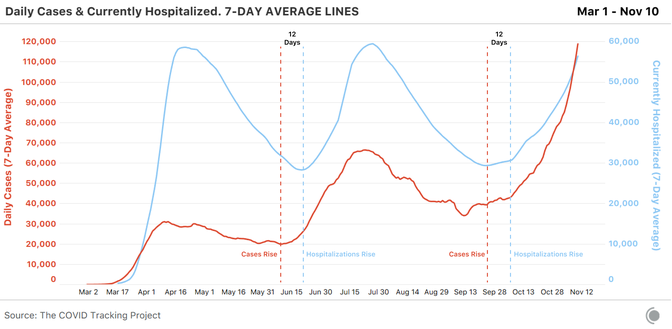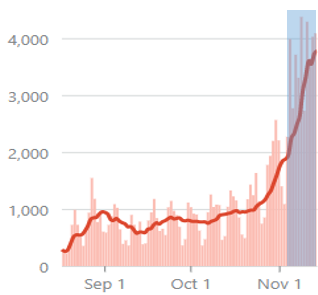
🚨I wrote the Atlantic’s next cover story on the COVIDization of science. No other disease has been scrutinized so intensely, by so much combined intellect, in so brief a time. This piece is about both the victories achieved & the weaknesses exposed. 1/
theatlantic.com/magazine/archi…
theatlantic.com/magazine/archi…
A year ago, zero scientists were studying COVID‑19. Since then, the COVID-19 papers submitted to 1 journal (NEJM) outnumber all Ebola papers ever published. Researchers worked wonders at a time when research was harder than ever to do. 2/
theatlantic.com/magazine/archi…
theatlantic.com/magazine/archi…
We have effective vaccines against a virus that, a year ago, was still unknown. That is an *astonishing* feat, not least because it validates technologies that will make it easier to build vaccines against future pandemics, too. 3/
theatlantic.com/magazine/archi…
theatlantic.com/magazine/archi…
The benefits of this scientific pivot go beyond this pandemic. COVID-19 research has taught us lessons about long-haul symptoms, aerosol transmission, and more, which should make us better positioned to deal with other diseases. 4/
theatlantic.com/magazine/archi…
theatlantic.com/magazine/archi…
But there were problems aplenty. A lot of important research ground to a halt. The quest to find new treatments was dogged by wasteful & badly designed studies. Inequities for women & scientists of color widened. 5/
theatlantic.com/magazine/archi…
theatlantic.com/magazine/archi…
Academia’s perverse incentives pushed overconfident poseurs towards sloppy work, which then got international attention. Many people swerved out of their scholarly lanes and plowed into unfamiliar territory, making life harder for actual experts. 6/
theatlantic.com/magazine/archi…
theatlantic.com/magazine/archi…
The final part of this piece is the most important. It's about how science lost sight of the social side of medicine, focusing on drugs, vaccines, & technofixes while ignoring inequity, trust, & politics. It’s about the pivot that still needs to happen. 7/
theatlantic.com/magazine/archi…
theatlantic.com/magazine/archi…
I hope this piece, using the pandemic as a lens, shows how science actually works; how research is funded, done, assessed, and discussed; and how the noble pursuit of knowledge collides with messy reality of an all-too-human endeavour. 8/
theatlantic.com/magazine/archi…
theatlantic.com/magazine/archi…
"At its best, science is a self-correcting march toward greater knowledge for the betterment of humanity. At its worst, it is a self-interested pursuit of greater prestige at the cost of truth and rigor. The pandemic brought both aspects to the fore." 9/
theatlantic.com/magazine/archi…
theatlantic.com/magazine/archi…
One thing about this piece: I wanted to avoid hero (or villain) narratives involving individuals. Science itself is the protagonist here--struggling, overcoming, falling, and finally returning to where it came from (hopefully) having changed. 9/
theatlantic.com/magazine/archi…
theatlantic.com/magazine/archi…
• • •
Missing some Tweet in this thread? You can try to
force a refresh







